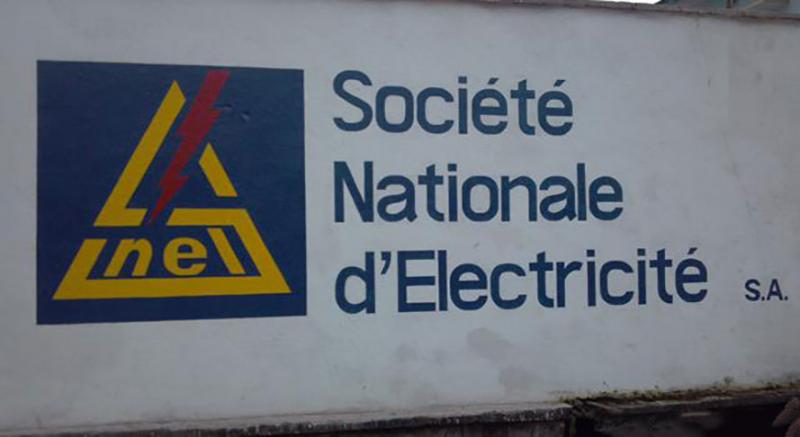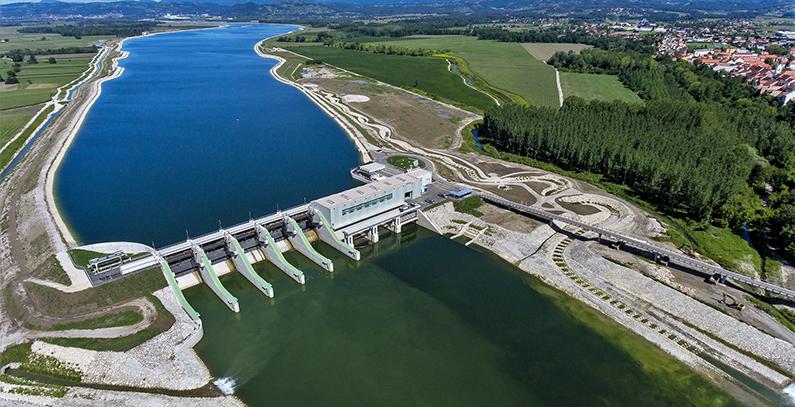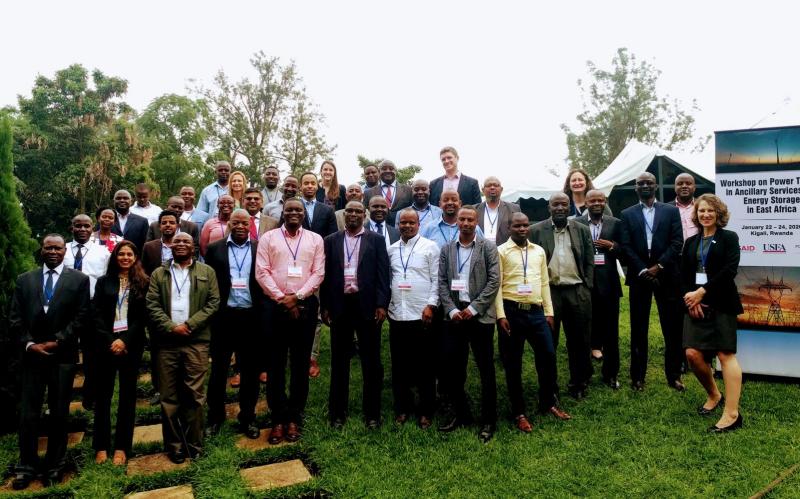Democratic Republic of the Congo

DEMOCRATIC REPUBLIC OF THE CONGO (DRC) HYDRO PARTNERSHIP
The EUPP partnership with the Democratic Republic of the Congo focused on the development of the Inga III hydropower project. From 2014-2015, the partnership worked with the key stakeholders responsible for power sector reform and developing new hydropower generation to meet with international experts to gain knowledge on best practices on the following topics:
- Construction and design of hydropower dams;
- Role of public-private partnerships;
- Financing hydropower projects; and
- Construction challenges in the planning and construction phases of developing large hydro projects.
EASTERN AFRICA POWER POOL PARTNERSHIP (EAPP)
The Democratic Republic of the Congo is a member of USEA’s regional Eastern Africa Power Pool (EAPP) Partnership which currently focuses on advanced modeling and long-term planning. EUPP will facilitate a series of training programs on load flow modeling and conducting security analyses using PSS/E software platform. These trainings will address insufficient levels of modeling and planning capacity among EAPP planning staff and planning committee members in individual countries. It will also build EAPP’s capacity in the advanced application of the PSS/E software, specifically in advanced power flow, contingency, voltage stability and dynamic analysis, transmission planning, power system operation, and the integration of renewable energy and HVDC systems.
NILE EQUATORIAL LAKES SUBSIDIARY ACTION PROGRAM (NELSAP) PARTNERSHIP
The Democratic Republic of the Congo (DRC) is a member of the regional Nile Equatorial Lakes Subsidiary Action Program (NELSAP) Partnership. In 2016 and 2017, the NELSAP Partnership focused on capacity building activities for NELSAP member states on the issues of contract and project management. USEA facilitated several regional workshops for project management specialists, engineers, financial analysist and legal advisors from East African utilities on contract development and negotiations, best practices in procurement, risk management, and dispute resolution. Workshop deliverables included customized project management documents and templates, as well as action plans for regional utilities to improve their contract and project management practices.
In 2019, the NELSAP Partnership’s focus shifted to power trading with the following objectives:
- Creating awareness among regional power industry stakeholders on possible mechanisms for allocation and compensation for ancillary service costs, as well as energy storage alternatives, based on U.S. and other international practices;
- Providing senior regional government officials and utility management with clear understanding of the existing gaps in the current set-up of ancillary services in the East African region;
- Creating a platform for generating sustainable discussions among East African energy stakeholders on policy, regulatory and market barriers for developing both local and regional ancillary and energy storage markets.
Southern African Power Pool (SAPP)
USEA formulated a partnership with the Southern African Power Pool (SAPP) to allow the member countries and various operating committees the opportunity to participate in executive exchanges with U.S. and overseas power pools, Independent System Operators, and regulatory agencies dealing with cross border trade. The key issues for this partnership were dealing with regional energy markets; regulation; cross border tariffs; and wheeling and legislative reforms. The partnership resulted in rewriting the current by-laws in regards to membership and voting rights to allow for the inclusions of IPPs, and updated power pool plan, and a regional frequency and environmental guidelines that are more in line with other international standards. The Southern African Power Pool (SAPP) membership is currently comprised of 16 utilities, independent transmission companies, and independent power producers representing the countries of Angola, Botswana, Democratic Republic of Congo, Lesotho, Malawi, Mozambique, Namibia, South Africa, Swaziland, Tanzania, Zambia, and Zimbabwe.




